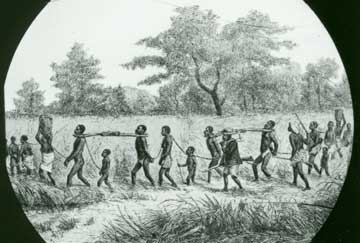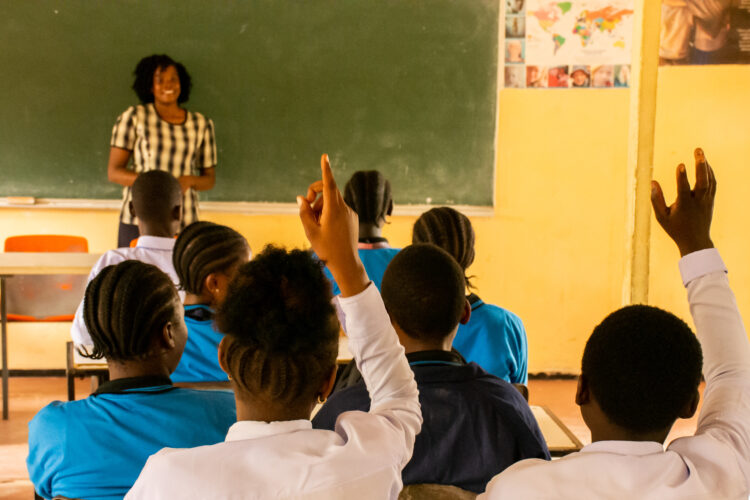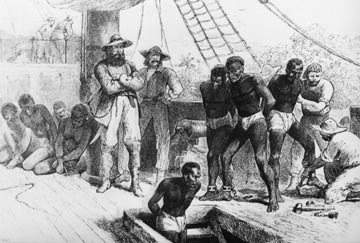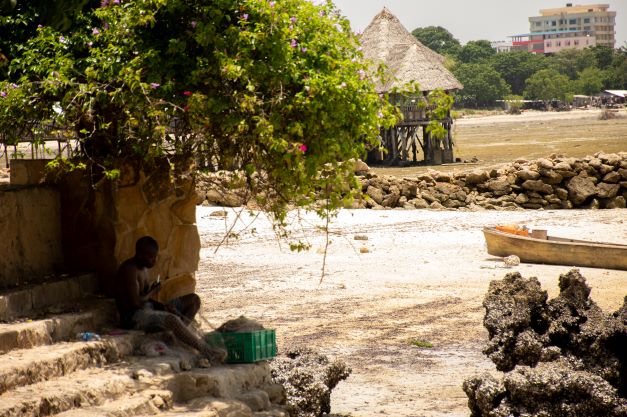
Speak out about modern slavery
We have a host of resources available for individuals, schools and faith groups
Download our free resources to help raise awareness of modern slavery in your communities
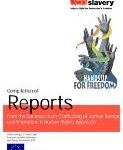
Hands Up For Freedom Conference : Compilation of Reports from the Conference on Trafficking of Human Beings and Migration: A human rights approach
Anti-Slavery International. In March 2005, Anti-Slavery International and other non-governmental organisations including CICA, IEPALA, MLAL Progetto Mondo and OIKOS took part in a conference in Lisbon, Portugal. The issues of trafficking and migration in Italy, Portugal, Spain and the United Kingdom were discussed, including the current siutation, government action and recommendations for change. Global partners presented papers on topics relating to the conference’s theme. The report is a summary of information made available during the conference.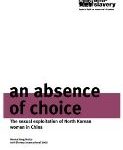
An Absence of Choice: The sexual exploitation of North Korean women in China
Anti-Slavery International.
This report exposes the vulnerability of North Korean women who flee to China to trafficking. A wide range of case studies documents trafficking into sexual exploitation and forced and ‘arranged’ marriages. It makes a case for North Koreans in China to be considered refugees and concludes with recommendations of what action needs to be taken.
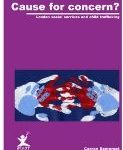
Cause for concern?: London social services and child trafficking
ECPAT UK.
ECPAT UK’s latest report on child trafficking into the UK. Cause for Concern? includes interviews with social services in all 33 of London’s boroughs to gauge social workers’ awareness of trafficking and record cases of children who have been trafficked to the capital. Twenty-six boroughs reported that they had worked directly with children who had been trafficked or who had been brought into the UK and were living in suspicious circumstances. It includes case studies, statistics and recommendations.
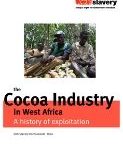
The Cocoa Industry in West Africa: A history of exploitation
Anti-Slavery International.
This report provides an in-depth analysis of how cocoa is produced and how child and slave labour enter its chain of production. It relates the history of cocoa production and explores how this commodity fits within a global market. Drawing on a wide range of sources, it concludes with recommendations for consumers, the chocolate industry and governments on actions needed to address this serious problem.
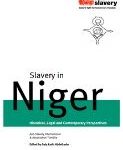
Slavery in Niger: Historical, legal and contemporary perspectives
Anti-Slavery International, Association Timidria.
Study on slavery in Niger.
Also available as a PDF download in French.
Comments on revised draft European Convention on Action Against Trafficking in Human Beings
Amnesty International, Anti-Slavery International.
Amnesty International and Anti-Slavery International assess some of the articles in the draft of the European Convention on Action Against Trafficking in Human Beings in relation to existing international standards and commitments. In the light of this analysis and our experience of working both with and on behalf of trafficked people, we recommend ways in which the text can be amended to ensure the treaty creates a comprehensive framework that protects and respects trafficked people’s human rights.
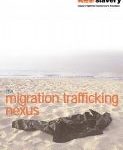
The Migration Trafficking Nexus: Combating trafficking through the protection of migrants’ human rights
Anti-Slavery International.
Trafficking, smuggling and migration are separate, but inter-related issues. This publication seeks to look at the issue of trafficking within a broader migration framework and to propose policies which would be effective in reducing trafficking and in preventing the human and labour rights violations to which migrant workers are so often subjected today. Also available in Spanish and Khmer. ISBN 0 900918 58 6
NGOs’ Statement on Protection Measures for Trafficked Persons in Western Europe
NGOs from five Western European countries — Germany (KOK) , Greece (STOP NOW), Italy (On the Road), The Netherlands (STV) and United Kingdom (Eaves Housing for Women and Anti-Slavery International) — presented this joint statement on protection measures for trafficked people at the OSCE Human Dimension Implementation Meeting in Warsaw in October 2003.
Stresses the need for appropriate measures for the identification of trafficked people to prevent their immediate deportation, need of right to a reflection delay, temporary or permanent residency status for trafficked people and need for means to ensure that the residency status allows the trafficked person full social inclusion.
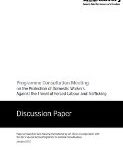
Programme Consultation Meeting on the Protection of Domestic Workers Against the Threat of Forced Labour and Trafficking: Discussion paper
Anti-Slavery International.
Paper prepared for Anti-Slavery International by Lin Chew, in co-operation with the International Labour Organization’s Special Action Programme to Combat Forced Labour.
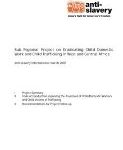
Sub-Regional Project on Eradicating Child Domestic Work and Child Trafficking in West and Central Africa: Code of Conduct English
Anti-Slavery International.
This summary from Anti-Slavery International’s French language report includes a Code of Conduct for improving the treatment of child domestic workers and child victims of trafficking, as well as recommendations for action. Anti-Slavery International set up a network of child rights organisations in six West and Central African countries: Bénin, Burkina Faso, Gabon, Ghana, Niger and Togo, in order to strengthen their ability to work together for the eradication of abusive forms of work and the worst forms of child labour.
